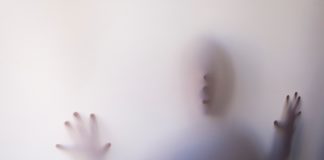Obsessive compulsive disorder is more common than most people realize. The term is at times casually used to refer to a habit that is not an obsession or a compulsion but just an act that someone repeats. Likewise, there are serious cases of obsessive compulsive disorder that don’t get diagnosed and the actions or reactions are perceived as normal habits. Coping with OCD begins from acknowledging the condition and getting diagnosed. It is quite possible someone with OCD will not have stark symptoms and someone with serious symptoms may not have OCD.
OCD Explained
Let us imagine a few scenarios to understand the exact nature of obsessive compulsive disorder. You get out of your car, lock it, walk towards the main door and check the lock again. You check all the main appliances in your home before walking out every morning. You may return to your ironing table to check if you have folded it or if the iron has been unplugged. These are repetitive acts but they don’t necessarily imply you have obsessive compulsive disorder. Being careful or doubly sure is not a sign of any psychological or cognitive problem.
Obsessive compulsive disorder is an anxiety disorder. When you repeat a task needlessly and with or without a preset routine, when you get anxious and fail to control the urge to perform that task at a given point in time or just about whenever the obsession strikes compelling you to react, then you can consider the situation as obsessive compulsive disorder.
It must be noted that the physical action or reaction is a manifestation of the disorder. The real problem is in the mind. It is the thought that propels someone to act, react or to keep doing something. The irresistible urge needs to be identified. When a task gets ritualized or some behavior becomes unchangeable, it is a concern.
Types of OCD
It is necessary to discuss the types of OCD as coping with OCD will be largely influenced by the exact nature of the condition.
• There are washers who are generally afraid of getting contaminated and hence their compulsion to wash hands and have multiple showers through the day.
• There are checkers who have a tendency to check everything, if they are in proper order. From locking doors to checking different items if they are where they should be, checkers can be overly anxious of one thing or everything.
• There are doubters or sinners who tend to think that everything needs to be done perfectly. Else they would be punished in some way.
• There are arranges or counters who would get anxious whenever something is out of place or not in order. They would have blind beliefs in some arrangements, colors and numbers.
• There are hoarders who cling onto everything they can because they feel something horrible can happen should they throw something away.
Coping with OCD
1. The first step is acknowledgement. The second step is diagnosis. A comprehensive diagnosis will help one to understand the extent of the condition, or the severity. Accordingly, one must opt for immediate medical intervention or can try self help approaches. Here are some ways of coping with OCD that have proven to be effective.
2. Family plays a pivotal role in coping with OCD. Friends are also helpful. Those who live alone or don’t have loving people caring for them are likely to get worse with time. There is no causal relation of isolation or loneliness with obsessive compulsive disorder. Someone living a happy life with caring family members around can develop OCD. But one who has developed the condition will get worse without the support of family and friends. Having people around and having a good time can distract a person from the urging thought and the uncontrollable or irresistible need to do something they are obsessed with.
3. Physical activity plays a quintessential role in coping with OCD. People who are idle, those who sit at one place for long hours or don’t do much with their body are likely to be more severely affected by the compulsive urges. One who is physically involved in some activity and is draining out energy will be naturally focused on the movements and engagements than on the urges popped up by the obsession.
4. One must try and identify the trigger in a specific scenario. Most people having OCD will have triggers. Shaking a hand with a stranger or anyone for that matter may be the trigger for someone to wash his or her hands. Welcoming someone into the house and then closing the door may be the trigger to check the lock again and again. Finishing cooking can be the trigger to repeatedly check the gas. There can be one or more actions or incidences serving as the trigger of the obsessive compulsive thought. It is not always possible to do away with the causes or the triggers but it is possible to be conscious of them. One must learn to cope with the triggers for successful coping with OCD. Being unaware of the triggers would not help, which is also why the diagnosis to find out the exact type of OCD and its severity is so important.
5. Coping with OCD can be unplanned or planned. One could be impromptu, respond to triggers as and when they experience them, control the urge or limit their rituals whenever there is the compulsion. One could also have a planned approach. Since most symptoms of OCD are haphazard before an intervention, it may be better to have a calculated or measured approach. Having a diary and updating it with the list of worries, checking on those worries or reviewing the causes of anxieties and also the anxiety attacks from time to time, reassuring oneself that things are in place and that there is nothing to worry about is an effective way of coping with OCD.
6. Relaxation is integral to coping with OCD. Anxiety by its very nature is unnerving. Anxiety is not tension or nervousness. Anxiety is a feeling of helplessness. It is involuntary and it cannot be overcome immediately having addressed the cause. Tension or nervousness is almost always transient, unless one suffers from hypertension which is again linked to anxiety. Physical and psychological relaxations are crucial in coping with OCD. Physical activity or exercise, games or movements will cause physical exhaustion. That will demand rest and the body will have to comply. Relaxing the mind is a more complicated scenario. One may try meditation. Anything that calms a person down, soothes his or her senses, makes one feel joyful and shuts off the mind from all possible causes of anxiety will work. Every individual having OCD must find out exactly what would soothe their senses and relax their mind.
If self help doesn’t work, then one must opt for cognitive therapy, medication including antidepressants, family therapy or group therapy. Medicines cannot cure psychological conditions. They would merely immunize you to the symptoms but you will keep repeating the rituals. It is necessary to win over the fears, to challenge the thoughts and to reassure your mind that the urges have no rational basis and that your obsessions or compulsions are practically unfounded.
47 Most Famous Motivational Quotes of All-Time
49 Greatest Love Quotes
37 Inspirational Quotes that Will Change Your Life
































